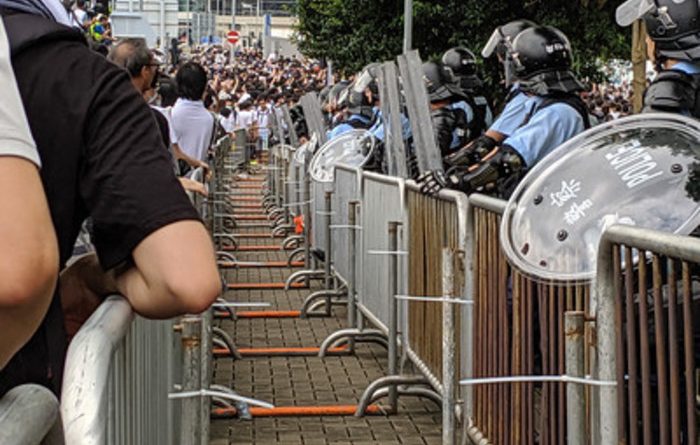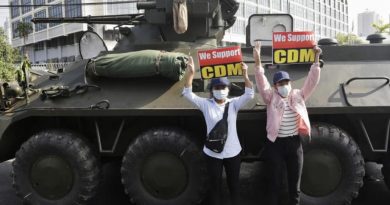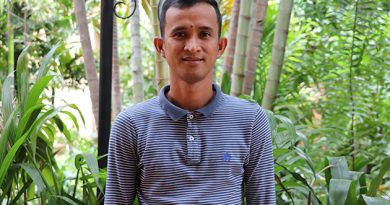Interview with Ms. Ching (HK Catholic Justice and Peace Commission)
Q1. What do you think about the Chinese attempt to enact the HK National security law? What are the people’s responses?
Though details of the security bill remain uncertain, I think the way to push for legislation reflects that the mainland government is no longer respecting Hong Kong’s autonomy, and trying to speed up the end of “One Country, Two Systems”.
In the short run, the security law could be a tool for government intervention in the coming Legislative Council’s election, which is expected to be in September, by for example, disqualifying pro-democratic candidates.
In the long run, given the numerous examples in the mainland China, the security law will be a tool for the government to silence criticism of the China government and to suppress the civil society’s movement. The proposal of establishing intelligence agencies in Hong Kong is particularly worrying.
We never expected such strong and rude intervention from the mainland government and many of us share the same mixture of feelings: shock, anger and desperate. While many people are thinking about leaving Hong Kong and we can foresee a new wave of migration, some have started to mobilize people again to resist, as you may have seen in the media since last Sunday.
Q2. We were told that HK government plans to teach about national security from primary to university, what is the your thoughts on this?
Right… this is one of the aspects that we are very much worried. It is so ridiculous that facing the young people’s discontent and resistant, the government keeps blaming teachers for bringing politics into schools, but in fact, it is the government who is making education more and more politicalized.
National security education is more threatening than national education, because more than building a politically-correct mentality, based on what we observe in the mainland China, it encourages reporting. In the school context, this means for example, students are encouraged to report to the authority if their teachers talk about something which is considered as endangering the national security.
We are very much afraid that this will totally change the school culture and suppress critical thinking, thus education is no longer developing people, but to serve the political power. The culture of our civil society will also be changed then.
Q3. It seems that the Trump admin. is abusing HK democracy issue for his interest (presidential election) in the war against China: What are the ways to for your people to fight for democracy without being caught by the US political interest?
I think we cannot avoid “being caught by the U.S. political interest” because without such interest, I don’t think Trump and the U.S. politicians would care about the Hong Kong situation. Likewise, political leaders of other countries do not speak up for HK to avoid having any confrontation with China for their political and economic interest.
Sadly speaking, no matter how serious the police brutality is, how incompetent our government is, and what wrongdoings they have done, there is no check and balance at the local level. That’s why since last year people turn to the international to seek help.
Especially because with the Hong Kong Human Rights and Democracy Act in the U.S., it allows the U.S. government to impose sanctions against China and Hong Kong officials responsible for human rights abuses in Hong Kong, and in case, to change the unique, favorable trade relations between the U.S. and Hong Kong, which could cause negative impact to China’s economic interest.
I personally do not trust the Trump administration; but I think, unless more governments dare to speak or act against the China government, Hong Kong people can only rely on the U.S. without choice.
Q4. What are the concrete ways for us Koreans to express our solidarity with you?
For this same question I have been asked several times since last year and sorry that I do not have many ideas. We know in Korea some individuals and groups have been doing sit-in to explain HK’s situation, releasing statements and signature campaign, etc. I think all these could encourage HK people.
As Koreans have experienced a long time of suffering from dictatorship and human rights violations, it may be helpful if we can develop some platforms of sharing on for example, how Koreans, especially the civil society’s movement faced such era of darkness, strategies and spirit, and how to keep people from falling into despair.
I think Koreans need to realize that China is a threat to humanity, which is not only a HK issue or China issue, but a global issue. Through different ways from economical to cultural, China has been exporting its own interpretation of democracy, freedom and human rights, and also spreading a culture of selfishness. Beware of and resisting Chinese infiltration in Korean society may be a first step.




